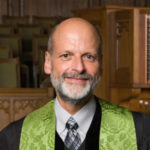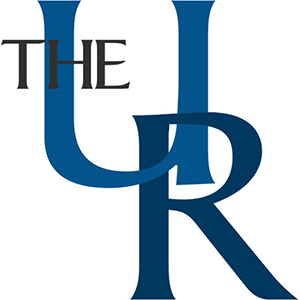 Thank you for sharing this early moment of your day with me, with God, and with the thoughts and words of this reading that I hope you will carry with you throughout the coming day and night.
Thank you for sharing this early moment of your day with me, with God, and with the thoughts and words of this reading that I hope you will carry with you throughout the coming day and night.
Today’s Scripture:
2 Peter 1:12-19
Common English Bible
12 So I’ll keep reminding you about these things, although you already know them and stand secure in the truth you have. 13 I think it’s right that I keep stirring up your memory, as long as I’m alive. 14 After all, our Lord Jesus Christ has shown me that I am about to depart from this life. 15 I’m eager for you always to remember these things after my death.
16 We didn’t repeat crafty myths when we told you about the powerful coming of our Lord Jesus Christ. Quite the contrary, we witnessed his majesty with our own eyes. 17 He received honor and glory from God the Father when a voice came to him from the magnificent glory, saying, “This is my dearly loved Son, with whom I am well-pleased.” 18 We ourselves heard this voice from heaven while we were with him on the holy mountain. 19 In addition, we have a most reliable prophetic word, and you would do well to pay attention to it, just as you would to a lamp shining in a dark place, until the day dawns and the morning star rises in your hearts.
Tim’s Devotional Reflection for Today
Today’s scripture reading comes from 2 Peter and reflects the widespread belief in the imminent return of Christ. We see this belief expressed in other places in the New Testament. The New Testament writings, circulating among the early Christians who experienced persecution, were a great comfort. Since the advent of critical biblical scholarship in the 1800s, it is widely accepted that the apostle Simon Peter did not write the epistle. An unknown author wrote the epistle in Simon Peter’s name to lend authority to it—a fairly common practice in that time and place. He writes a message of hope and comfort to encourage and reassure Christians in a very dark time.
Sometimes we hear the adage, “the present shapes the future.” There is no question about the truth of that! An action taken now yields some kind of result in the future. Cause and effect, we call it. Decisions I make today affect tomorrow. But, there is another reality that rings just as true: the future shapes the present.
While it is true that the beginning determines the end, it is also true that the end determines the beginning.
If you read between the lines of some of the writings of the New Testament, it is apparent that there were a lot of questions and anxiety about the future. When would the Lord return? Would it really happen? Would it be in our lifetime? How do we live today? Where do we find hope in the present realities?
In this earliest of Paul’s letters, we can see how Paul believed that the consummation of the kingdom of God—that day when Christ would return and God’s will would be done on earth as in heaven—was imminent. He believed that it would happen at any moment. As we read Paul’s later letters, we can see how Paul’s understanding changed. He began to understand that, while the future does indeed belong to God and the culmination of all things is the culmination of the will of God, the how and the when remain a mystery.
Yet, what we see in 2 Peter and in Paul’s later letters is the understanding that who we are and what we do today is shaped by the vision we have of the future. The future shapes the present. As Christians, we call it “eschatology”—how we seek to understand the “eschaton,” Greek for “the last things.”
At Perkins School of Theology at SMU we were required in our systematic theology class to write a Credo. The Credo was about a 30-page paper stating what we believe. Thirty pages is not very much space to write what you believe and why, so most students struggled with the assignment. We were more intimidated by it than the assignment probably warranted. There were Credo study groups that worked through issues together and the Credo was the center of conversation for weeks in the spring. Most Credos were organized around the major areas of the theological discipline: what you believe about God, Theology; what you believe about Jesus Christ, Christology; what you believe about the Holy Spirit, Pneumatology; what you believe about humanity, Anthropology; what you believe about salvation, Soteriology; and then there was what you believe about the last things, the end of history, Eschatology.
I remember a classmate named Phil who had a dream when we were in the birth pangs of our Credos. He was struggling with his section on eschatology as he went to sleep. In his dream a giant hand came down out of the clouds and on the hand was a leaf of lettuce and on the leaf of lettuce was a scoop of chicken salad with pimientos. A loud voice said, “This is eschatology.”
He said, “This is eschatology? Chicken salad with pimientos? I hate pimientos!” Then he woke up. As he reflected on his strange dream, he realized that he viewed eschatology like pimientos—something to be picked out and left on the side, so as not to ruin the good stuff.
I could identify with Phil’s dream. Many Christians, preachers included, would rather not talk about eschatology too much. It chases more rabbits out of the hole than you can hunt down in the space of a sermon—or a morning devotional, for that matter. Besides, there is so much mystery there and so much disagreement among Christians about the nature of the last things. Not only that, some of the ideas about the last things are just plain terrible theology not in keeping with the nature of God revealed in Jesus.
While Christians disagree widely about the how and the when, what we hold in common is a hope that comes from the confidence that the future belongs to God. We are able to find joy—even in our present darkness—because we believe in the promise of a coming dawn. In that way, the future shapes our present.
The questions the early Christians had about their world are questions that we ask in different ways: Where are we going? What does the future hold? Where is history headed? What will become of me and those whom I love?
Jesus set forth the vision of a world where God’s will is done on earth, as in heaven. He came to teach us how to love one another and he demonstrated that love in concrete and powerful ways. The prophets before him held up the dream of a world where the will of God would be done—a kingdom of God where the lion would lie down with the lamb; a kingdom ruled by love. It is that vision of the future that shapes our present. It is that vision of the future that calls us to live in a certain way in the present.
There is a lot of theology woven into hymns. To enhance today’s reading, I recommend listening to “O God, Our Help in Ages Past”. I hope you will take a few moments to let the words of this message and the emotion that always connects us to music connect with your soul. Listen to this on SoundCloud.
Oh God, our help in ages past
Our hope for years to come
Our shelter from the stormy blast
And our eternal home
Under the shadow of thy throne
Thy saints have dwelt secure
Sufficient is thine arm alone
And our defense is sure
Before the hills in order stood
All Earth received her frame
From everlasting thou’ art God
To endless years the same
A thousand ages in thy sight
Are like an evening gone
Short as the watch that ends the night
Before the rising sun
Time, like an ever-rolling stream
Bears all its sons away
They fly, forgotten, as a dream
Dies at the opening day
Oh God, our help in ages past
Our hope for years to come
Be thou’ our guide while troubles last
And our eternal home
Amen
I am so grateful for you, for our church, and for the Love that will see us all through this very difficult time. Please stay safe and well and we’ll be together again in spirit tomorrow morning!
Grace and Peace,
![]()
Dr. Tim Bruster
Senior Pastor
Here’s more about this passage of scripture via Upper Room devotionals:
LIVING WORD
I can help make God’s word come alive for others.

